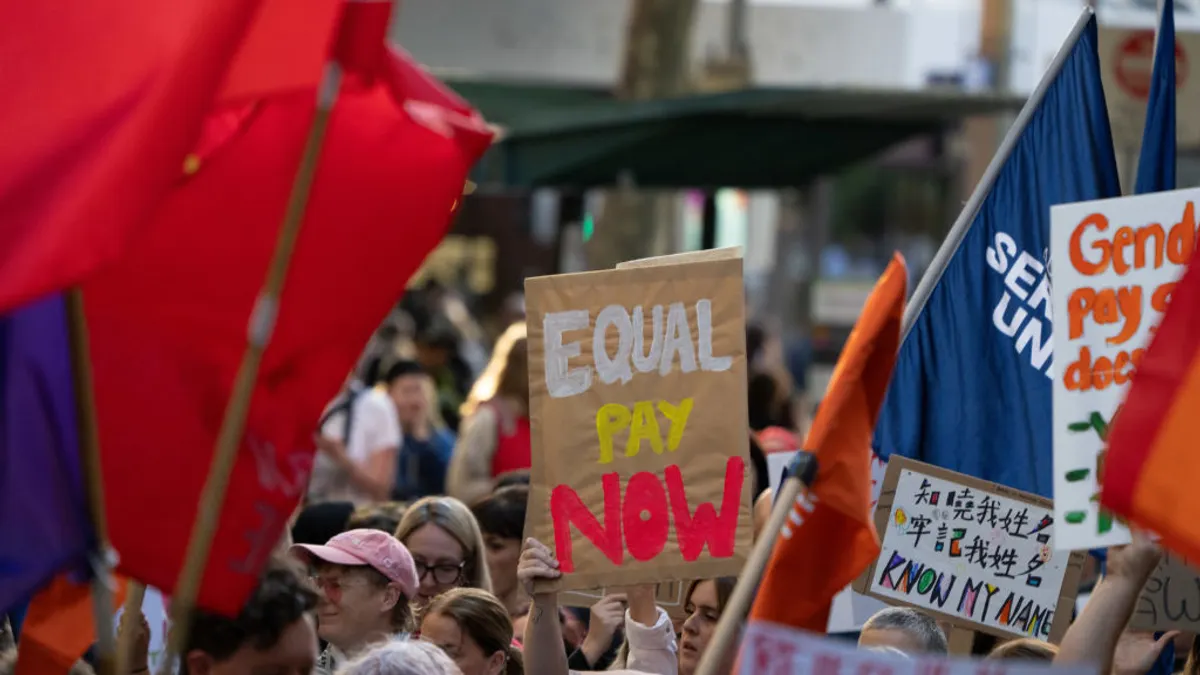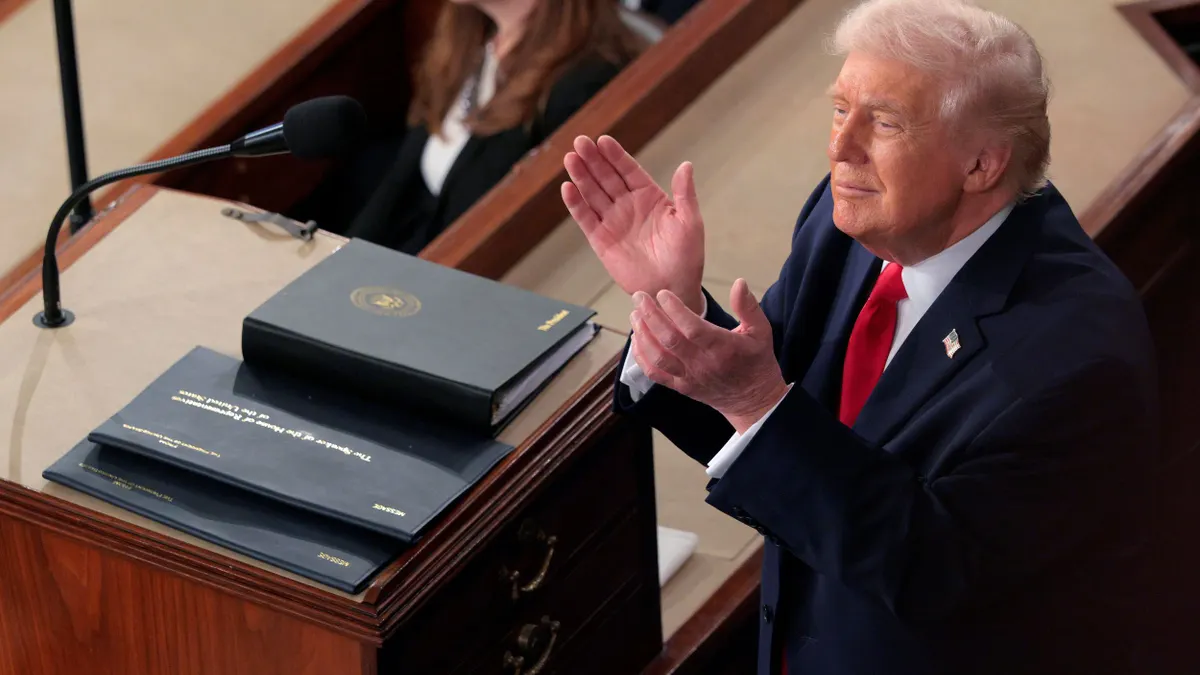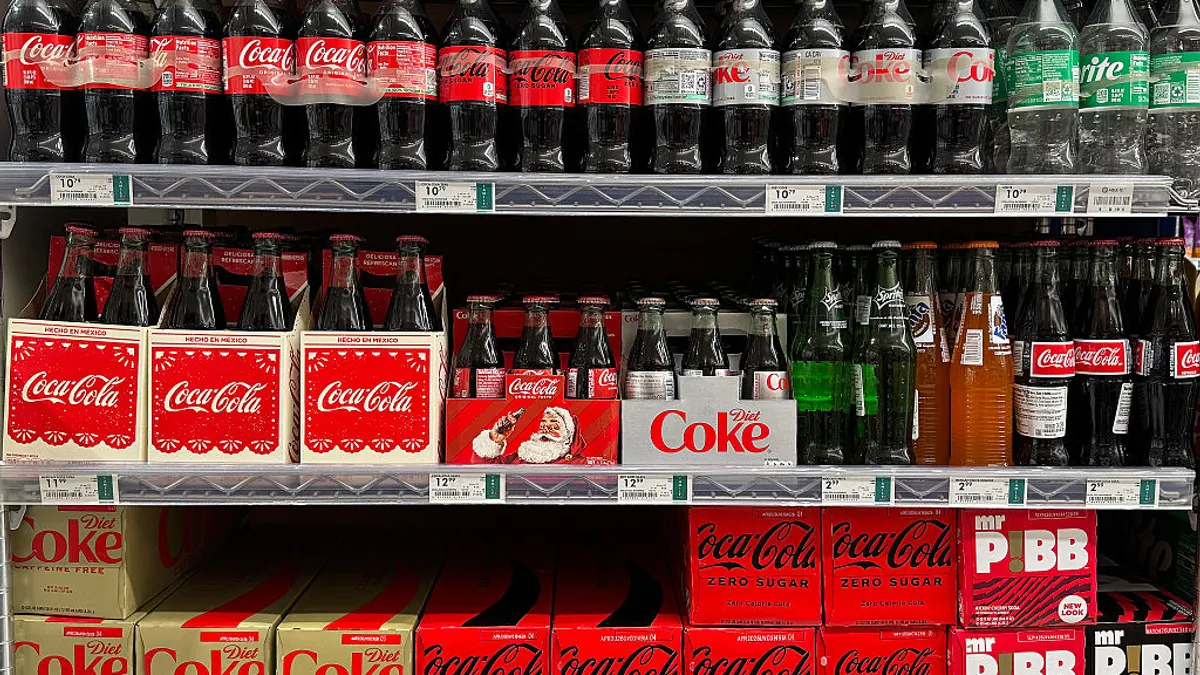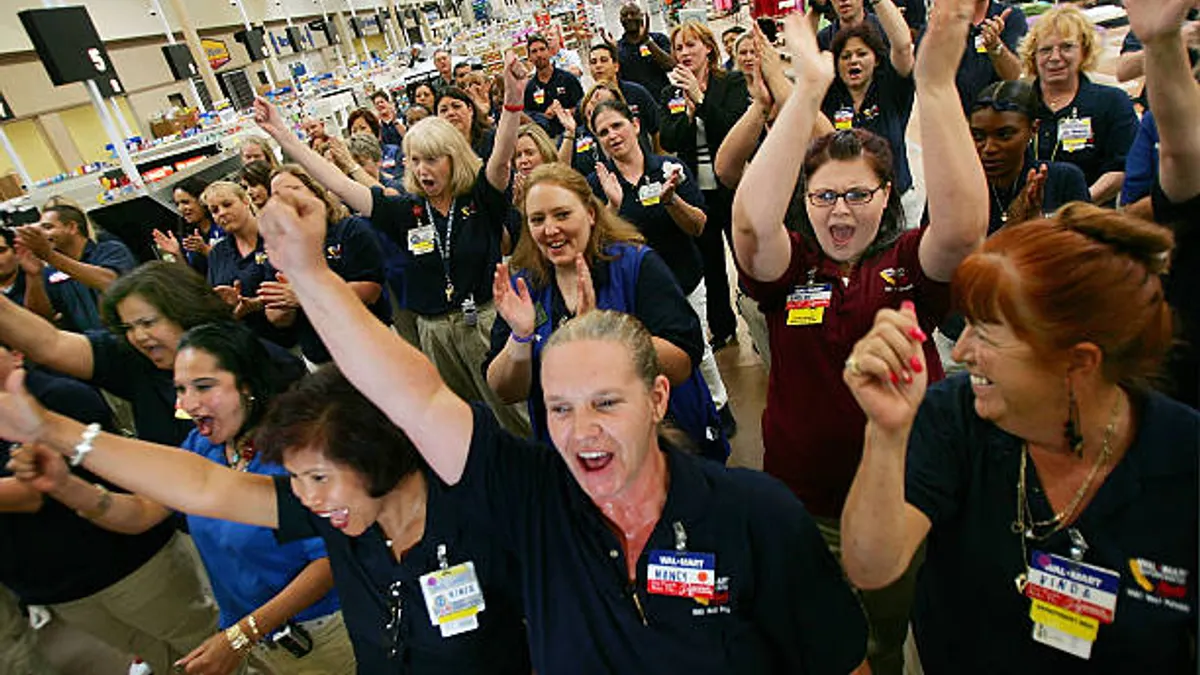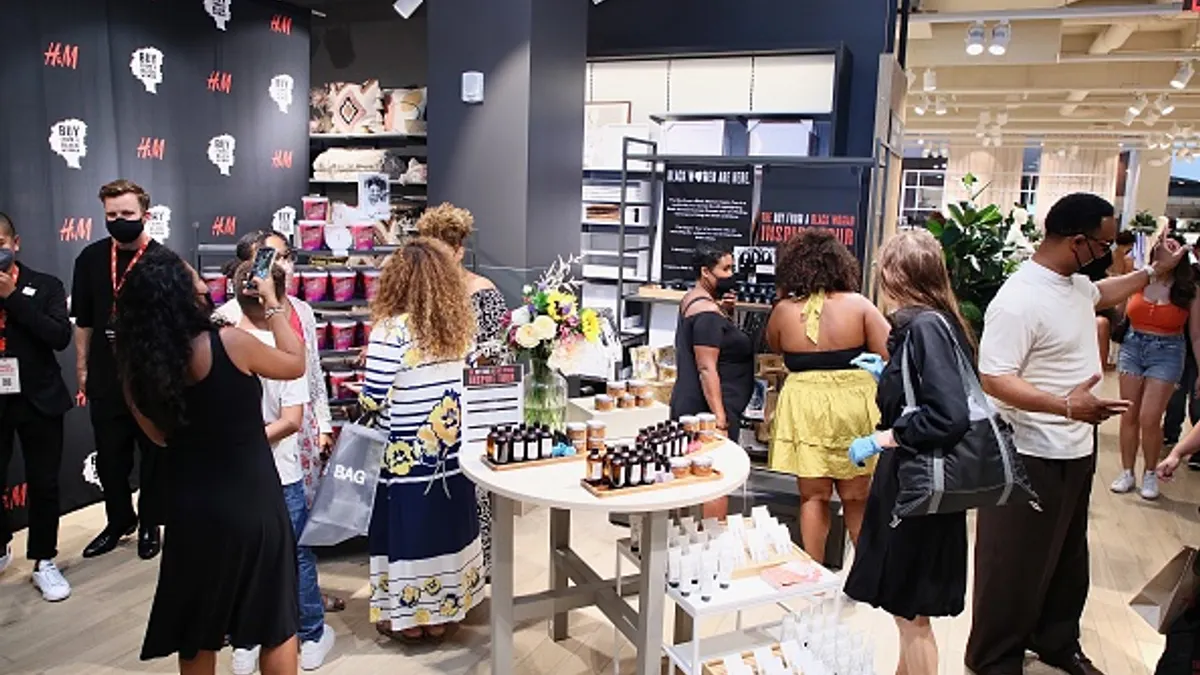Korn Ferry named its first-ever chief diversity officer June 11. He says it's a role he has been "preparing for unknowingly" over the course of his lengthy career in the industry.
Michael Hyter joined the executive search and workforce consulting firm by way of acquisition in 2012. At the time, he was running a consultancy of his own in Washington, D.C., which was absorbed into Korn Ferry's operations. Eight years later, the company appointed him to the newly-created role.
"It's a role that hasn't existed prior in the history of the firm," Hyter told HR Dive. "But it is a role that I have counseled, coached and supported with hundreds of clients in my career as a practitioner in the diversity and inclusion space."
Having seen the way so many D&I leaders act, as well as what responsibilities they carry, Hyter said he has observed a few different versions of this role. Some primarily focus on diversity as an aspect of brand management and external relations; others are more compliance-driven, focused on representation, he explained. What he hopes to be, and where he expects to be, is an organizational leader who drives value through the infusion of diverse viewpoints.
"I see the role that I'm in as a strategic part of the structure of the business," Hyter shared, "reporting to the CEO directly with the view of looking at supporting the organization and operationalizing diversity and inclusion throughout the entire talent lifecycle […] as well as maximizing skill sets for production and managing the brand marketing, strategic partnerships and media interface at the same time."
Getting started
He has yet to hire a staff, and is still in the process of determining what roles are needed. But after making an appearance at a company "town hall" meeting, Hyter said he was excited to receive more than 300 emails from colleagues willing to help out — on top of their normal job responsibilities.
"There's a thirst from people, even within their day jobs, to want to be part of helping the organization in this area," he said. "As I start to create employee resource groups, or reboot our diversity and inclusion council, or think about diverse teams for innovation and ideas, I like that there's a community of people who are ready to be engaged."
While internal diversity is often one of the first places D&I leaders focus in their strategic plans, many also play a role in shaping product. Recently, companies such as Band-Aid and Conagra foods have made changes to products and branding, aiming to be more inclusive. For a B2B services provider like Korn Ferry, the "product" solutions to diversity may not be as obvious, but can have a profound effect.
"We have a significant practice that provides [diversity and inclusion] consulting and training services to clients," Hyter said, calling that a "fortunate" aspect of his situation. But he also said he sees opportunities for improvement in "increasing our executive search partners' ability to identify and map and be relationally familiar with a broad, diverse population of talent," and helping clients be more inclusive in their workforce planning decisions.
Making a difference
As a longtime consulting practitioner with eight years of practice leadership, Hyter said he believes a "relationship equity" that includes familiarity and trust will help him make an impact.
"I know how the business is operated. I know where there's areas of opportunity, but I also have relationships with people who have key people in various parts who could be partners and helping us work together, as opposed to strangers trying to figure each other out for two or three years."
For now, as a department of one, with 7,200 Korn Ferry employees across the globe as his stakeholders and projects from his previous role still in progress, Hyter said he'll meet with as many people as possible before formulating the initial version of his strategic plan. For now, he's hoping his passion and excitement for this new position will get him through a hectic initial stage.
"I really do see this role as an extension of my professional ministry, and I see it as something I've been preparing for unknowingly my entire life," he said. "When you're in that space, which is what I hope for everybody who's working, that they're in a position where their talents and passions match organizational needs. A lot of time and work doesn't feel taxing like it does when you're out of alignment with those three things. So I'm generating a lot of energy and fueled by a lot of energy as a result of it, which is something that I would hope for everybody who's listening, that they feel that way about their jobs."







